Canada now has its own history of the Afghan war — good luck finding a copy
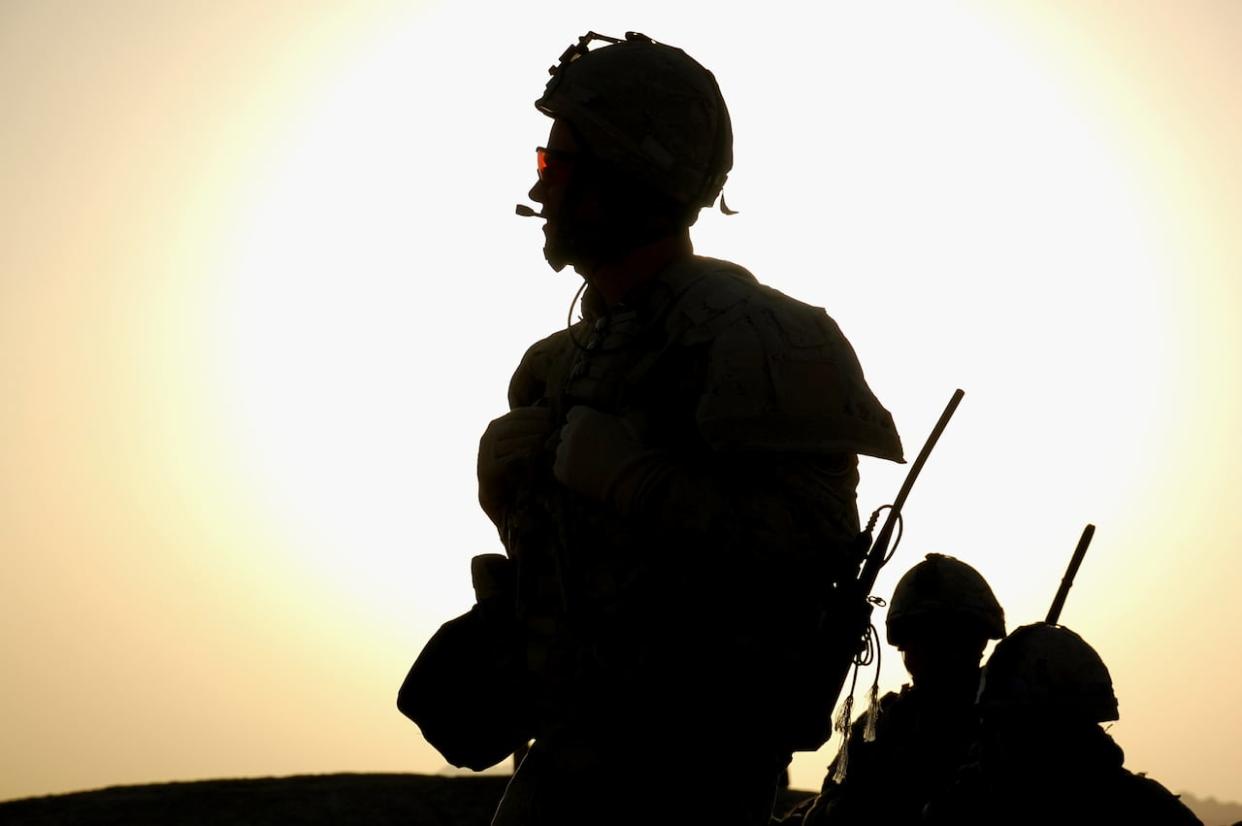
The first comprehensive, in-depth history of Canada's war in Afghanistan, written largely in real time over several years by a military historian, was quietly (some might say reluctantly) published last summer by a federal government printer.
Average Canadians, the soldiers who fought there and the families of those killed in action will have a hard time getting their hands on a copy, however.
The history was commissioned by the Canadian Army and the Department of National Defence (DND), and written while the war was still raging by Royal Military College historian Sean Maloney.
Only 1,600 copies of the history (800 English and 800 French) have been produced — much to the dismay of veterans and the retired general who initiated the project.
The Canadian Army in Afghanistan, an exhaustive three-volume history, covers the entire dozen-plus years the Canadian Forces fought the Taliban in the landlocked, impoverished South Asian country.
Maloney's work is Canada's first comprehensive history of the war in Afghanistan. Unlike previous volumes commissioned by the military on Canada's experiences in the First and Second World Wars, it's not an "official" military history (official histories tend to examine more than just army operations).
Almost a decade of delays
Embedded with Canadian troops for months at a time during the five-year combat mission in Kandahar and the subsequent three-year training mission in Kabul, Maloney was given inside access to soldiers, commanders and documents that journalists who covered the war did not share.
He has produced a highly detailed, clear-eyed, occasionally visceral account of the war on the ground that in some cases provides new insights into key battles and events.
CBC News was able to borrow copies from the Canadian War Museum.
A major portion of Maloney's research and writing was completed after Canada's withdrew from combat operations in Kandahar in the summer of 2011. The expectation at the time was that the history would be published around 2014, upon the completion of the mission to train Afghan soldiers.
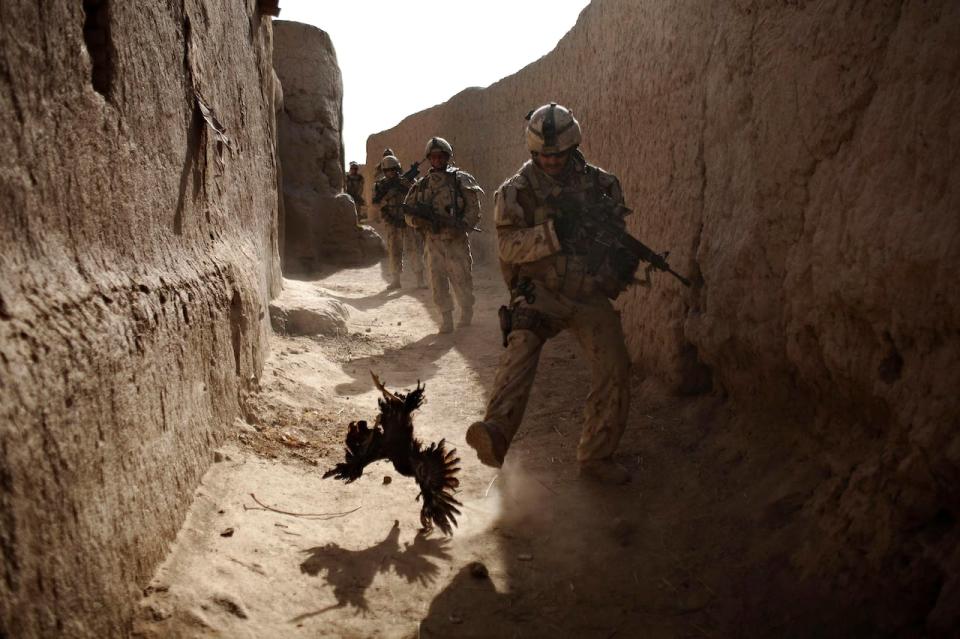
A Canadian soldier with the 1st RCR Battle Group, the Royal Canadian Regiment, chases a chicken seconds before he and his unit were attacked by grenades shot over the wall during a patrol in Salavat, southwest of Kandahar, Afghanistan, on Sept. 11, 2010. (Anja Niedringhaus/The Associated Press)
But publication was held up for almost a decade by reviews and debates within DND and the Canadian Forces about Maloney's often blunt assessments — his criticism of Canada's allies and other government departments, his questioning of some decisions by senior commanders.
The work was published with an extensive legal disclaimer: "The views expressed in this publication are entirely those of the author and do not necessarily reflect the views, policies or positions of the Publisher, the Editor, the Government of Canada, the Department of National Defence, the Canadian Armed Forces or any of its affiliates."
In an interview with CBC News, Maloney acknowledged he faced pushback from some quarters of the defence department about what he had written. Overall, though, he said he was happy and relieved to see the work finally in print.
No plans to offer the history for sale
In a media statement, the army said it hopes to one day produce a downloadable electronic version. That plan is still in the formative stages.
But there are "no plans to support the public sale of hard copies" because the King's printer "is not structured to be a public publishing enterprise," the army said.
The history was commissioned in 2007 by former lieutenant-general (later Liberal MP) Andrew Leslie, who was army commander at the time.
Maloney said he was given a very specific set of instructions and took the assignment only after being granted academic and editorial freedom.
In an account backed up by Leslie, Maloney said he was told that the history "cannot be army propaganda. It has to come from somebody who understands us but is not directly, deeply involved in the politics of the organization."
Maloney's mandate was later renewed by now-retired lieutenant-general Peter Devlin, who took over as army commander after Leslie's departure.
Maloney said his task was to tell the story of Canada's mission in Afghanistan in isolation, and not through a wider lens including the actions of allies, as was done with previous official military histories of Canada's involvement in the two world wars.
"We need to frame what we did there on our terms, not through the lens of our allies," he said. "And it's important we do that for who we are, and what we want to be about [as a nation]."
In an author's note, Maloney wrote about how important it is for Canada to "take responsibility for our history."
Canada 'written ... out' of war's history, author says
He described the work as an unapologetic Canadian approach to the war.
"The existing literature in the United States and in the United Kingdom dealing with the war in Afghanistan has thus far virtually written Canada out of history," Maloney wrote in the author's note.
"Worse, American and British failures are now assumed to be Canadian failures, as well. Where Canada or the Canadian Army is mentioned, it is cursory in nature, derisive in tone, or both."
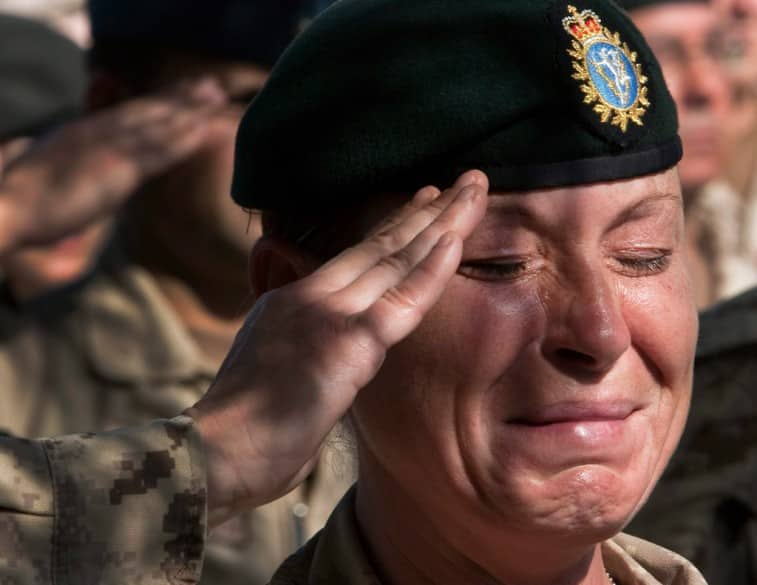
A tearful Sgt. Renay Groves salutes during the final Remembrance Day ceremony at Kandahar Air Field. (Ryan Remiorz/Canadian Press)
Maloney said he started experiencing pushback within DND and the military after he handed in his first draft of the manuscript following the end of the combat mission.
CBC News asked for an interview with the commander of the army for an explanation of the concerns. The request was denied.
'Uncomfortable truths'
In a written statement, the army said it recognized that "the commentary, views, and opinions expressed in Dr. Maloney's work may present as uncomfortable truths to some."
But the army said it did not try to suppress or derail the project.
Maloney said there was "a steady drum beat" of concerns and qualms in military and department circles about his work. Eventually, he said, the project was shuffled within the military to the Canadian Defence Academy Press, an internal government printer that publishes scholarly and professional works.
"There are a number of people that tried to step in and interfere with my editorial prerogative," said Maloney, who pointed out that Leslie, the commander who commissioned his work, had left the army by the time he finished his first draft.
"And then another colonel stepped in to say I can't contradict an established Canadian position, for political reasons. And I said yes I can. I have academic freedom on this and editorial control."
Maloney would not describe the "established Canadian position" he was accused of contradicting.
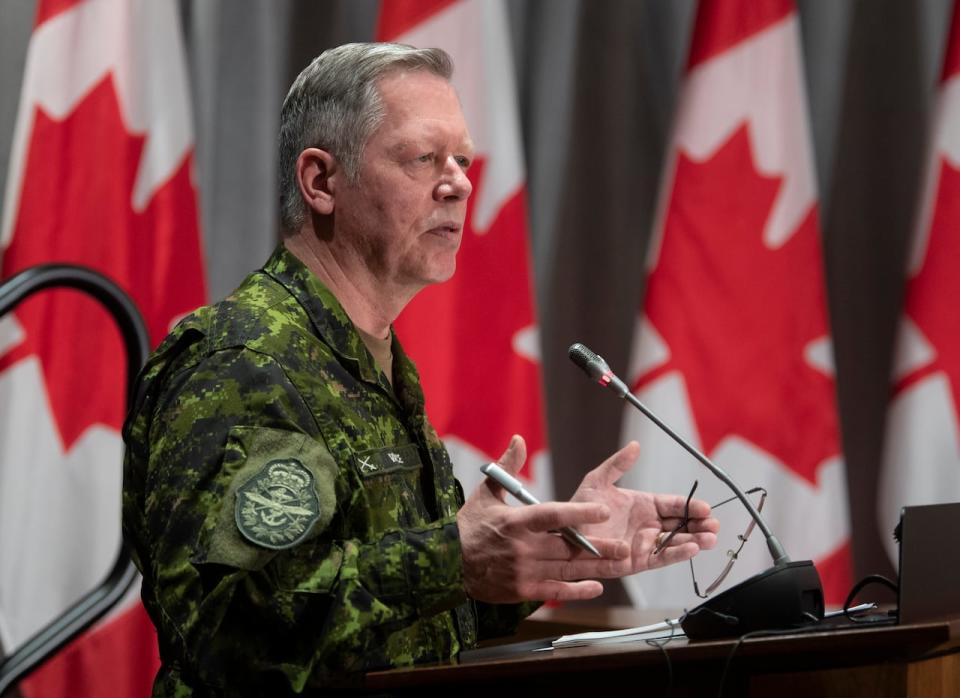
Chief of the Defence Staff Jonathan Vance responds to a question during a news conference on May 7, 2020 in Ottawa. (Adrian Wyld/The Canadian Press)
Maloney said that several years ago, he took the list of specific complaints about his work from within the department and the Canadian Forces to the chief of the defence staff at the time, now-retired general Jonathan Vance. He said Vance dismissed 90 per cent of the complaints.
A few years later, publication was moved once again to the Army Publishing Office. There, Maloney said, he discovered that portions of his text had been rewritten without his permission; he reversed the changes.
In an interview with CBC News, Leslie praised the final work. He said it differs from the official histories of previous wars, which were published many years after the conflicts had ended, when "just about everybody involved had died [of] either old age or disaster."
He said the history should serve as a tool to help the army learn lessons from its past operations and campaigns.
"You had to tell the whole narrative and decide for future generations what was relevant," Leslie said. "In terms of editorial independence or independence of thought, the last thing you want is for senior officers to try and influence the outcome. Revisionist history — that was not the intent."
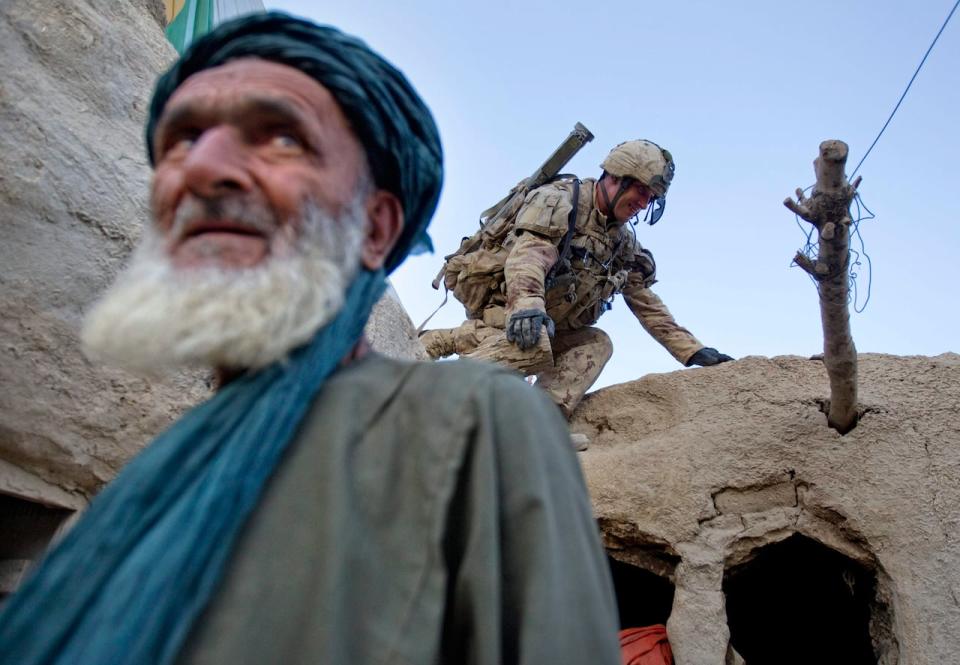
Pvt. Richard Boutet, 38, of Quebec City searches a compound as the owner Fazel Mohammad, left, looks on during an operation in the Panjwaii district of Kandahar province, Afghanistan on June 30, 2011. (David Goldman/The Associated Press)
The disadvantage of publishing such a history so soon after the conflict has ended, he said, is that the author might come to "conclusions or assumptions" that may be superseded by new facts and information down the road.
Leslie said he's only heard rumblings about the project since leaving the military and was mystified by the delay in publication.
"I found that extraordinarily disappointing, not fully understanding really what the causes were," he said. "There was perhaps some jealousy from some other academics or military officers [with a vested interest in Afghan war history]. I honestly don't know."
Veterans vexed by limited distribution
The limited distribution and the delays in publication are a source of frustration for veterans who served in the war. Dozens of them have reached out to CBC News since the summer to complain.
Retired master-corporal Nathan Kehler is passionate about military history and helps run Project 44, an online interactive site that digitally maps Canadian Second World War campaigns using battle diaries and archival maps.
Kehler, a veteran of Afghanistan, said he's disappointed that Maloney's work was buried in bureaucracy.
"It's disappointing," he said. "Our history deserves to be told, deserves to be in a proper historical context, and a three-volume set like this deserves to be out in the public and in libraries."
He said he has a hard time explaining to his children what he did in Afghanistan because society is so steeped in narratives from previous conventional wars, where the transition from war to peace was less ambiguous.
Some people may be uncomfortable with what Maloney wrote, Kehler said, but that's no excuse for downplaying or interfering with his work.
"Being a soldier means you have to be uncomfortable sometimes. It means you have to be accountable," he said.


